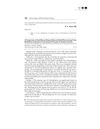Oxidative Stress in Alopecia Areata and Its Association with Disease Severity, Treatment, and Autoimmunity
January 2015
in “
Turkiye Klinikleri Journal of Medical Sciences
”

TLDR Corticosteroids may not effectively control oxidative stress in alopecia areata, possibly leading to relapses.
The study investigated the role of oxidative stress in alopecia areata (AA) and its association with disease severity, treatment, and autoimmunity. It included 30 AA patients and 26 healthy controls, measuring oxidative and antioxidant system parameters like malondialdehyde (MDA), nitric oxide (NO), superoxide dismutase (SOD), and glutathione peroxidase (GPx). Results showed that AA patients had significantly higher NO and lower MDA and SOD levels compared to controls, with no significant difference in GPx activity. No relationship was found between oxidative stress parameters and AA severity or autoimmunity. Despite clinical improvement in AA patients treated with corticosteroids, there was no significant change in oxidative stress markers before and after treatment. The findings suggested that corticosteroids might not effectively regulate oxidative stress markers in AA, potentially contributing to relapses post-treatment.








